Recently, the "Sino-Europe Intellectual Property Judicial Protection Symposium" was held at Tongji University, guided by the Supreme People's Court, hosted by the Shanghai Higher People's Court and Tongji University, and co-organized by the Shanghai International College of Intellectual Property of Tongji University and the Shanghai Intellectual Property Court.
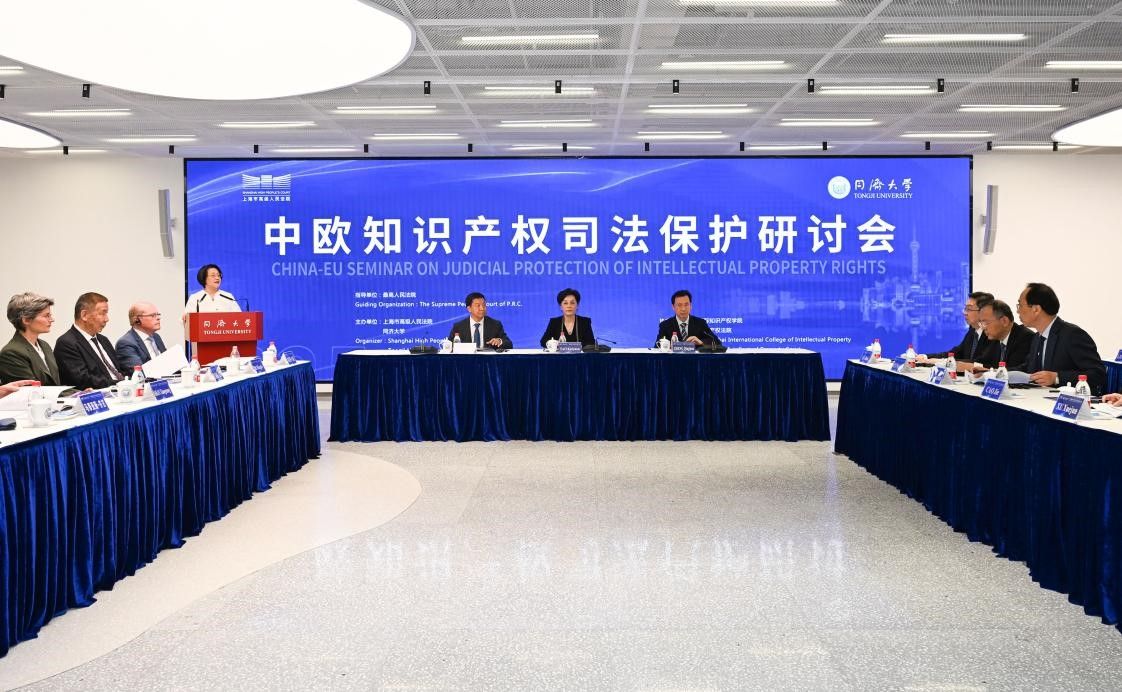
Notable attendees and speakers included Tao Kaiyuan, Vice President of the Supreme People’s Court of China and Vice President of the China Law Society; Jia Yu, President of the Shanghai Higher People’s Court and President of the China Criminal Law Society; Zheng Qinghua, Party Secretary of Tongji University and Academician of the Chinese Academy of Engineering; Klaus Bacher, Presiding Judge of the Tenth Chamber of the German Federal Supreme Court; and Rui Wenbiao, Director of the Shanghai Intellectual Property Office.
The symposium featured two parallel forums focusing on key issues such as data mining and training, AI-generated works, standard essential patents, and cross-border litigation. The event aimed to deepen judicial cooperation between China and Europe, ensuring judicial protection of intellectual property aligns with technological innovation.
Tao Kaiyuan emphasized the importance of intellectual property in driving technological innovation and economic development, highlighting the need to study IP boundaries and rules thoroughly. He stressed the critical role of judicial protection in fostering innovation, maintaining fair competition, promoting economic growth, cultural prosperity, and openness, while balancing rights remedies and technical tolerance. Tao called for strengthened China-Europe IP exchanges to advance global IP governance and continuously fuel global innovation.
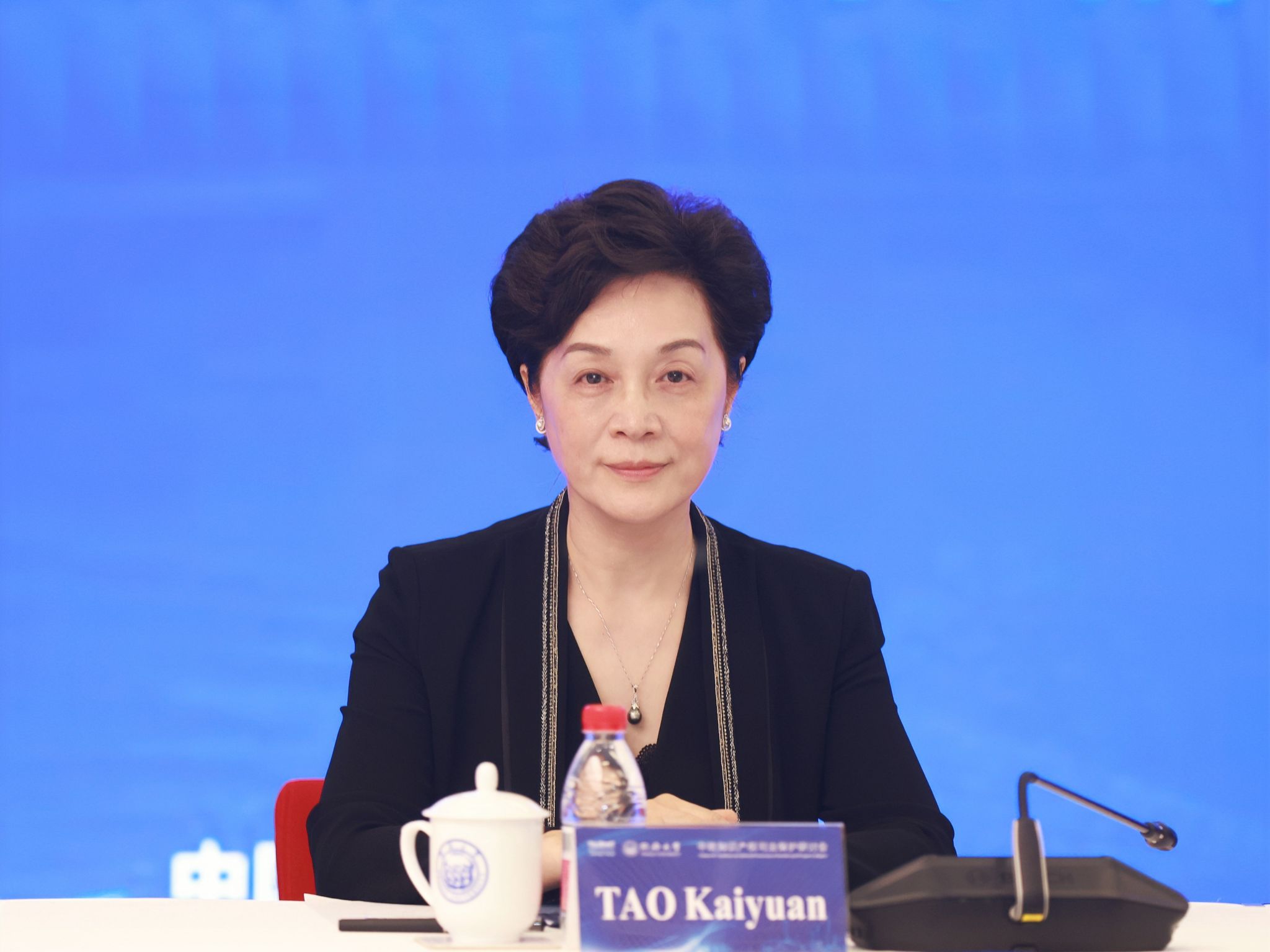
Jia Yu expressed gratitude to domestic and international experts for supporting Shanghai courts. He urged a proactive judicial stance to safeguard technological innovation, deepen international judicial exchanges in IP, and strengthen cooperation with relevant institutions to build a robust IP protection framework. He also highlighted the importance of exploring judicial rules for advanced fields like AI and optimizing mechanisms for foreign-related IP litigation.
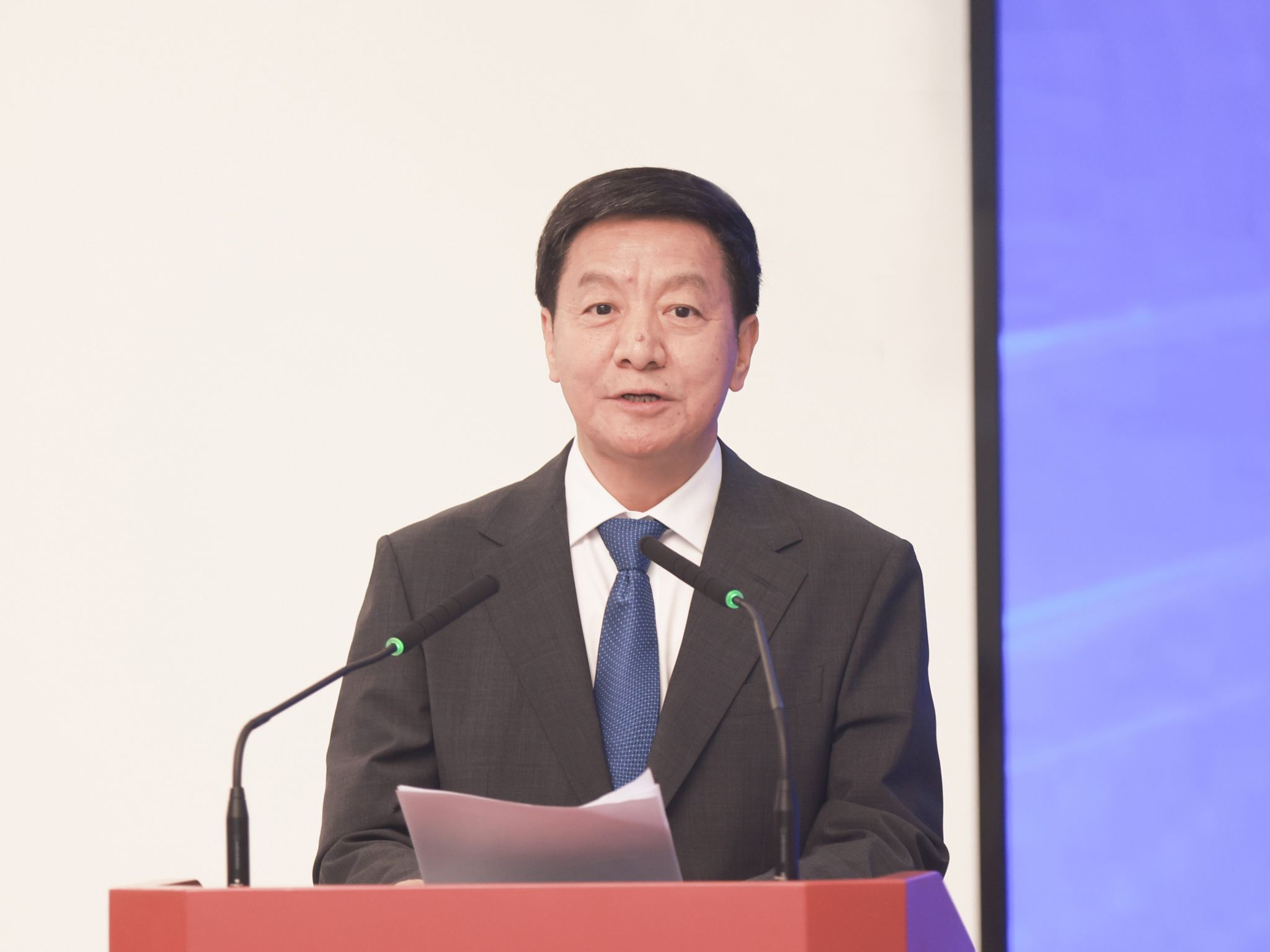
Zheng Qinghua noted that the symposium represents a significant step toward enhancing foreign-related rule of law and high-level opening-up. He anticipated leveraging judicial cooperation to institutionalize the “human–machine–law” co-governance concept, promote AI-enabled talent cultivation in intellectual property, and deepen China-Europe governance collaboration through joint platforms.
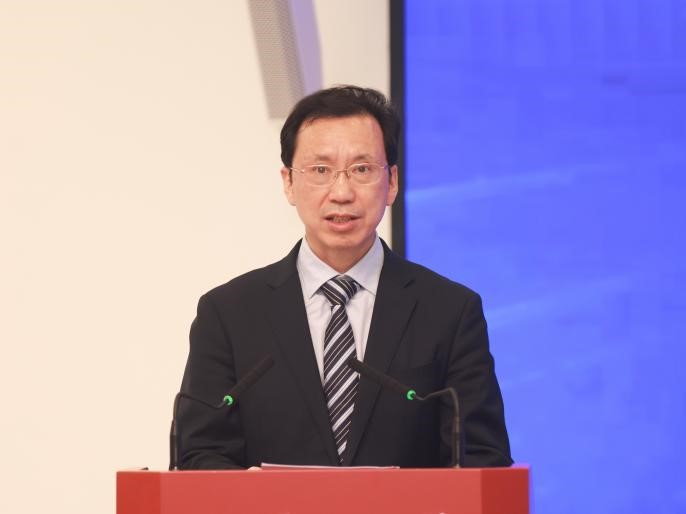
Klaus Bacher underscored that protecting IP means protecting innovation. He observed that emerging technologies like AI and blockchain bring unprecedented challenges and opportunities to traditional IP protection. He welcomed the seminar as a platform for China-Europe experts to address IP judicial issues in the digital era and to advance international IP talent training and practical cooperation.
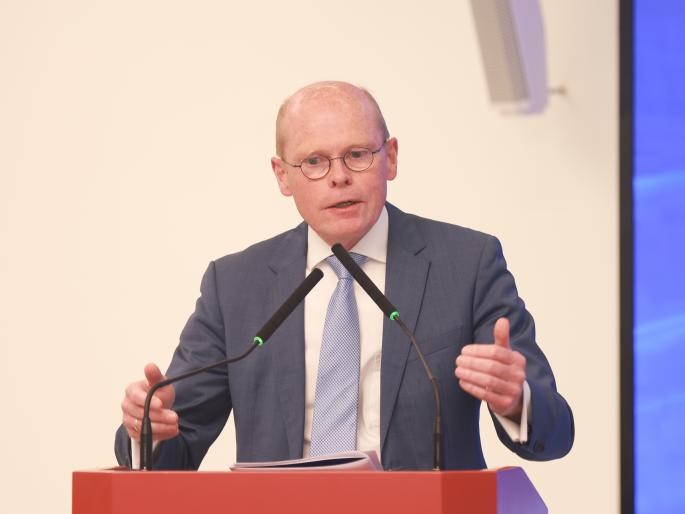
Rui Wenbiao highlighted intellectual property as a strategic pillar for enhancing urban competitiveness. Shanghai has prioritized IP protection by fostering close collaboration between courts and the IP office, innovating protection mechanisms, expanding dispute resolution channels, and strengthening IP protection teams, steadily improving IP enforcement effectiveness. He called for further cross-departmental and regional cooperation to build a comprehensive IP protection system.
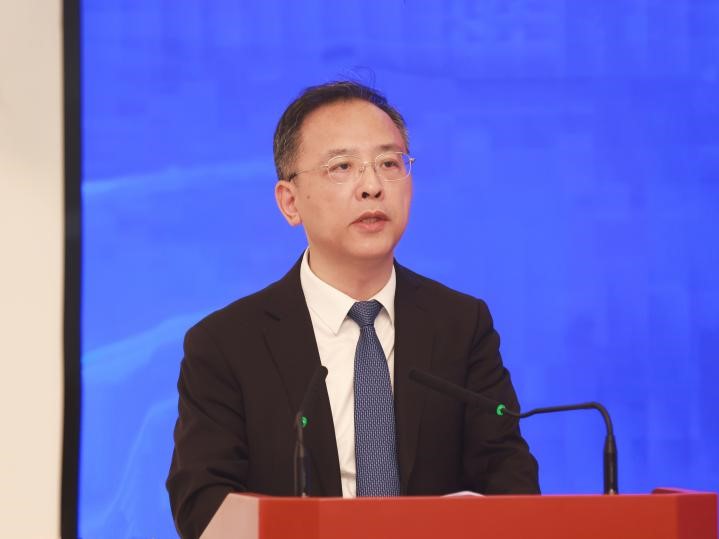
Experts at the parallel forums engaged in in-depth discussions on topics including copyright protection of data training and mining, infringement assessment of large AI model-generated works, licensing rates and jurisdiction for standard essential patents, and practical challenges in cross-border IP litigation, sharing the latest research and experience.
The opening ceremony was hosted by Cao Jie, Vice President of Shanghai Higher People’s Court, and the closing ceremony by Zhu Dan, President of the Pudong New Area People’s Court. Summary remarks were delivered by Li Shulan, Standing Committee Member of the Shanghai Higher People’s Court, and Matthias Zigann, Presiding Judge of the Munich Local Division of the Unified Patent Court.
Attendees included Li Jian, Director of the Third Civil Division of the Supreme People’s Court; Xi Jianlin, President of Shanghai Intellectual Property Court; Xu Xuejun, Vice President of Tongji University; and senior judges from Zhejiang and Anhui High People’s Courts.
More than 70 judges and experts from China’s Supreme People’s Court and courts across Beijing, Shanghai, Zhejiang, Anhui, Guangdong, as well as judges from the German Federal Supreme Court, Unified Patent Court Munich Local Division, Munich District Court, and Düsseldorf District Court, along with scholars from Tongji University and the China Law Society Intellectual Property Law Research Association participated.
With a long tradition of Sino-German and Sino-European exchanges, Tongji University serves as a key hub for education, science, and cultural cooperation. Since 2018, the Shanghai Higher People’s Court has been a council member of Tongji’s Shanghai International Intellectual Property School, engaging in fruitful cooperation under a framework agreement. In April this year, witnessed by Jia Yu and Zheng Qinghua, the parties signed a new special cooperation agreement to deepen collaboration in IP legal education and judicial practice. This seminar represents another milestone in their partnership.
